Evil Editor's Blog, page 21
November 27, 2023
Face-Lift 1442
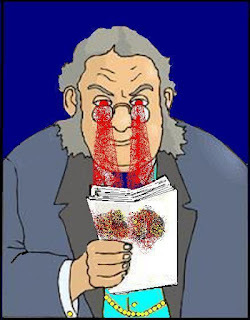
Guess the Plot
Phoebe
1. Phebe, Feebee, Pheebe, Pheobe, Phoebe, ... how is it spelled? Heidi would really like to remember how to spell her soon to be sister-in-law's name before her wedding.
2. Phoebe wants to escape from jail. Gigi wants to escape from her body. These SoCal sisters move in together and share each other's loneliness. They draw straws to determine which one will be the title character of their depressing memoir. Phoebe loses.
3. The woes of an oboe-playing coed poet, Phoebe Roe, who doe-see-does in open-toed shoes with a foe named Joe who spiked her sloe gin with aloe at a noel hoe-down.
4. Astronomer Phoebe Moore studies the outer planets. She worries about the planetarium where her boyfriend works getting shut down. And that he has yet to take a hint from Saturn about a certain circular object.
5. A genetically-modified woman who now possesses bee pheromones, giving her the ability to control bees, battles Anthony, a similarly-modified man who commands hordes of ants to do his bidding.
6. Heartthrob of the last decade, Phoebe Beck-Joeck, moves to Alaska to run a B&B. With moose and polar bears her only companions, blah, blah, blah, starry night sky, blah, blah, blah, cold winters, blah, blah, militant Greenpeace group hot-fighting global warming, blah, blah, blah, blah. Literary fiction.
Original Version
I am seeking representation for Phoebe, an 84k word literary fiction novel.
Phoebe and Gigi are second generation Vietnamese-Americans living in 2019 Southern California, who are coping with the deep loneliness and melancholy that is their late-twenties. Eight months ago, Phoebe dropped out of her doctorate program and needed to be bailed out of jail. [Getting out of jail wasn't nearly as emancipating as getting out of her doctorate program.] The only person left in the world who could help was Gigi, who, at the time, was pregnant and hiding it.
This novel starts at their point of reconnection, then pulls Phoebe back into her buried past to dissect her broken relationships while Gigi is stuck in the minutia of her newfound motherhood, grappling with her discarded ambitions. In her court-mandated therapy sessions, Phoebe is forced to recall the events of her life that lead [led] to her arrest while Gigi is trapped at home and using her mind to escape her body. [Did you say your novel was literary fiction, or your query letter?]
Adoptive sisters turned best friends, they must once again live under the same roof. They keep secrets from each other in order to hide the shame of who they think they should be [Who do they think they should be, and why does this bring them shame? Maybe the shame of who they have become?] and do everything to avoid burdening the other. But as their dissatisfaction grows to a peak, they begin to confront how their choices in life were impacted by [rooted in?] their mothers’ unknowable history. [I don't see how their mothers' histories affected their choices if those histories are unknowable. Is it the fact that they're unknowable that affected their choices? Even that seems odd. I choose to quit grad school and commit a crime because I know nothing about my mother?]
This story is experimental in form, including multiple timelines, dual perspectives, and information revealed through letters. [Those items don't strike me as experimental in a novel.] It takes place so deep inside the minds of its two narrators that the lines between perception, trauma, memory and reality are constantly blurred. [Quite a graphic description of the setting. Most authors just say: It takes place in New Jersey.] Some graphic depictions of sexual encounters and sexual assault are also present for the sake [purpose] of exploring their psychological impact. [If you don't mention them, you won't feel the need to explain why they're there.] [I'm not sure this paragraph is doing much for you. Perhaps a paragraph reporting something specific and crucial that happens in the book would be better.]
Phoebe is the type of book that opens discussions on the shared and intergenerational trauma of first-born daughters, how the men they hope to love influence the outcomes of their lives, and the ill-defined transition between girlhood and motherhood. The ideal reader for this story is someone interested in examining the complex morality between love, family, and female friendship. [If the only people who came to my blog were "the ideal readers for" my blog, there wouldn't be enough of us for a game of chess.]
There is nothing currently on the market just like Phoebe, [unless there is, which I doubt,] but this novel would sit on the shelf somewhere between Milk Fed by Melissa Broder, for its dreamy, sexual prose and psychological musings, and Banyan Moon by Thao Thai, for its reflection of [on?] strained relationships between mothers and daughters. [It will sit on the shelf somewhere between those books only if your last name falls alphabetically between Broder and Thai.] Though similar in premise to Fiona and Jane by Jean Chen Ho, this is a novel of two best friends coming back together rather than a short story collection of their separation. [You have enough comp titles already, no need to also point out how your book differs from some other book with a similar premise.] [Also, italicize all the titles in this paragraph, including your own.]
Thank you for your time and consideration,
Notes
You have a way with words, but your words need more specificity, and need to demonstrate that you have a story. Even if your book is mostly psychological musings and reflections on strained relationships, you could provide some concrete information. For instance, what did Phoebe do that got her arrested? Is Gigi pregnant by someone who sexually assaulted her? What goal is Phoebe hoping to accomplish? What's her plan to succeed?
Does anything happen in the present, or are all the events reported in letters and therapy sessions and conversations? Just starting the book with Phoebe's crime and arrest and court case might give the book more immediacy. Showing us is usually preferable to telling it to a therapist while we listen in.
November 20, 2023
A new title in the query queue needs your amusing fake p...
A new title in the query queue needs your amusing fake plots.
https://evileditor.blogspot.com/p/query-queue_7.html…November 14, 2023
Face-Lift 1441
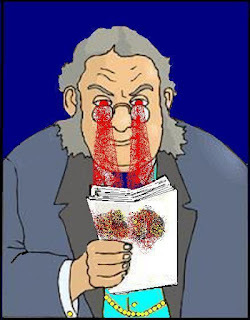
Guess the Plot
The Disappearance of Anne Curtis
1. When reporter Anne Curtis discovers there's a parallel world where robots do all the real work and people do whatever they want, she must decide whether to reveal her findings to the scientific community . . . or just move to the parallel world.2. Anne Curtis disappeared a year ago, and the police have given up on finding her, so now it's up to Hal, who just opened his detective agency. Trouble is, it's hard to get the cops to hand over the case file when you're only twelve years old.
3. When magician Lou Hendrix opened the cubicle, his assistant, Anne Curtis was no longer inside. The audience erupted in applause. When Lou closes and reopens the cubicle, it's still empty. And Lou is as surprised as anyone.
4. CCTV footage shows Anne Curtis boarding a bus at 7th and High. But she never reaches her destination and there's no footage of her leaving the bus. Can detective sergeant Patrick Hathaway solve the disappearance of Anne Curtis before she misses her best friend's wedding?
5. Anne Curtis knew it was a mistake to attend her high school reunion, but she did, and now she's shackled to the wall in the dungeon underneath the chem lab. In retrospect, the reunion theme--Let's Get Revenge on Anne Curtis--should have been a dead giveaway.
6. She's gone, she's gone. I better learn how to face it. She's gone, she's gone. I'd pay the devil to replace . . . my sweet Anne Curtis.
Original Version
Dear Evil Editor,
Ever since [?-year-old] Hal found out his father, who died before Hal was born, was a detective, Hal has wanted nothing more than to be one too. [At least his dad wasn't an ice road trucker.] [If it was Mom who blabbed, she probably now wishes she'd told Hal his father was an editor.] So he reads tons of mystery books [Wouldn't he learn more reading Detective Work for Dummies than novels starring Hercule Poirot and Nero Wolfe?] and opens his own detective agency. The only thing he needs is someone to hire him to work on a case.
While at the beach posting fliers

with his partner, Shoshanna Tucker, Hal meets Mr. Curtis, who’s handing out MISSING posters. Anne Curtis, Hal’s former classmate, is believed to have drowned in the Great South Bay a year ago, at least that’s what Hal heard. Mr. Curtis tells them Anne suffered from somnambulism, and the police think she sleepwalked to the marina and took out their rowboat in the middle of the night. [An interesting twist. Normally, the police would accuse Curtis of killing Anne and burying her body in a shallow grave in the woods, or dismembering her and feeding her to the sharks in the bay, and at his trial Curtis would attempt to create reasonable doubt by coming up with a preposterous alternative theory for his daughter's disappearance, namely she walked from her home to the marina where her family rowboat was stored, removed the rowboat's cover, untied the rowboat from its mooring, inserted the oars into the oarlocks, and rowed out to sea . . . all while sleeping. The jury would be out for about two minutes. But in your mystery, it's the police who come up with this fantastic theory, and the prosecutor who tries to sell it to a jury.] Though she was never seen again, Mr. Curtis still believes she’s [still] alive.
Later, Hal finds a novel about missing girls Anne had given him shortly before she disappeared. Did she know something bad was going to happen to her? [Yes. Just as, if an albino tried to kill Anne, the classmate to whom she'd given a copy of The da Vinci Code would be wondering if she'd foreseen the attack.] In addition, he suddenly remembers the nasty things kids said about Anne in school. Was she bullied? Hal, currently having his own problems with a bully, decides to investigate. [This bullying issue doesn't feel relevant enough for the query. Sure, maybe a bully kidnapped Anne while she was sleepwalking, set the rowboat adrift as a red herring for the police, and has had Anne chained in his parents' basement for a year, torturing her every day after school, but for now we should just stick with the actual evidence Hal gathers. You could replace this entire paragraph with: Hal offers to investigate Anne's disappearance, and Mr. Curtis hires him on the spot.]
While visiting Anne’s house, he makes a promise to Anne’s little sister, Maggie, that he’ll try and find Anne. But the more he examines the case, the more it looks as if Anne drowned, as everyone says. [I suspect that if you're sleeprowing, and fall out of your rowboat, you'd wake up immediately and could grab onto the boat or swim to shore. However, I can find nothing on Wikipedia to support this theory.] Finally, he finds new evidence that suggests Anne might not have been sleepwalking that night. But is it enough to lead to the truth?
Then Maggie begins sleepwalking. Will she go missing next? [Probably not, as by now the Curtises surely have installed padlocks on the doors and bars on the windows.] Hal begins to wonder what he’s gotten himself into and if he’s really a detective after all.
THE DISAPPEARANCE OF ANNE CURTIS, a 49,000-word middle grade mystery, is available upon request. This is my first novel.
Thank you for your consideration,
Notes
Near the end of the Wikipedia article on sleepwalking are several examples of people who used sleepwalking as their defense when charged with murder. Several of them got off. One who didn't get off was convicted because the jury felt the crime was too complex to have been committed while asleep. Which is why I believe this Curtis dude is gonna get life without parole.
No need to even mention Shoshanna Tucker if she plays no role in the query.
I don't see how Hal can examine the case or find new evidence. What evidence convinces him, at first, that Anne drowned? How is he getting new evidence? (Where's he going? Who's he questioning?) Convince us that he has some skills as a detective.
This book would sell better if the title character had a more interesting name. Take a lesson from Charles Dickens, whose titles included such names as Martin Chuzzlewit, Edwin Drood, Nicholas Nickleby, David Copperfield, Barnaby Rudge . . . I suggest The Disappearance of Jamie Lee Curtis.
November 10, 2023
A new title in the query queue needs your amusing fake p...
November 6, 2023
Face-Lift 1440
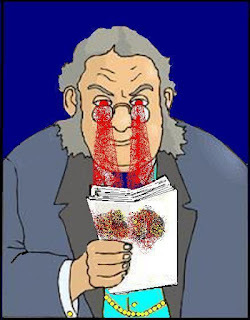 Guess the Plot
Guess the PlotHope and Other Lost Things
1. Julia is crushed when her wife Marin walks out on her. But then she meets Erin, and her hope of happiness is rekindled. But will it last only until she later meets Sharon and Karen?
2. Losing hope is bad. Losing faith can be worse. Losing chastity might not be the worst thing, depending on how and when it happens. But Linda has lost all three at once, and unfortunately for her, Hope, Faith and Chastity are her neighbor's seven-year-old triplets. For crying out loud, they were right here like five minutes ago. This job is not worth ten bucks an hour.
3. Hope seems to have stumbled into looking-glass land, which for someone who already can't tell left from right isn't that different from normal. Can you help her find her way home? Also, Tweedle Dum-diggity-dum-didi-dee and other descendants of beloved characters from certain children's classics.
4. Hope has somehow ended up on an island filled with lost things. Turns out they're her things. Unfortunately, they want to remain lost.
5. Things go from bad to worse when every end-of-the-world scenario in myth and legend all start happening at the same time. Pandora--Panda to her friends--is told to do something about it. Srsly? Like what? She's an ordinary teenager.
6. Nothing is as it seems. No one is who they claim. There are twists on every page, divinations, revelations, feelings, tongs, and there may or may not be a barbecue which is a metaphorical, allegorical syllogism. Abandonment featured for all who read these pages.
7. Volunteering at the shelter, Kassie takes a fancy to a sweet tabby she names Hope, unaware she is the reincarnation of the cat goddess Bastet. And Bastet is not impressed with the amenities at the shelter. Kassie must appease the goddess to prevent a global feline revolution.
Original Version
Dear [Agent's Name],
I am writing to seek your representation for Hope and Other Lost Things, a 100,000 word lesbian romance. This emotionally charged story follows the hope and grief plaguing Julia Jenner (39), the Superintendent at Kleinton High School, and her burgeoning connection with Erin Calanis (25), a representative from a company evaluating the school. [It's my understanding, an understanding that comes from the highest authority, Wikipedia, that the principals of all the schools in a district would report to one superintendent. Does each elementary, middle, and high school have its own superintendent in this place?]
After two decades together, Julia’s wife walks out [on her] without another word. [Is that without another word besides the vague explanation she gave, or with no explanation?] All she’s left with are fractured memories and pieces of an unfinished love story that doesn’t fit together anymore. Julia is trapped in a hollow existence, clinging to the hope of Marin's return–wedding photos still adorning their house, untouched divorce papers on her bedside table even after a year. [I think I'd put the first sentence (or first two sentences ) of this paragraph in past tense. It's slightly jarring to have it in present tense when it happened at least a year before the rest of the paragraph.] [Wait, there was no communication between Julia and Marin? Before or after the serving of divorce papers? No big fight over housework? Nothing in those papers about irreconcilable differences like Julia chews her ice and eats meat? Only after an electrifying moment with a mysterious woman in a bar does a glimmer of her old self rekindle.
When Kleinton High hires an outside company to evaluate her school, [Isn't Julia the one who would do that hiring?] Julia never expects it to be Erin, the woman she almost took home the night before. Even with the undeniable connection between them–a familiarness in Erin’s touch, a magnetic pull neither can ignore–Julia is compelled to face her past. Through Erin, Julia rediscovers the fragments of herself that she believed had been lost forever. Now, she stands at a crossroads, torn between retreating into the deafening silence surrounding her life or embracing the fragile tendrils of hope that seep through the shadows. [Being a man of the world, I'm aware that you can meet someone in a bar, form a seemingly undeniable connection, and consider taking them home. However, during the time you're conversing over your beverages of choice, it seems like someone would mention what they do for a living, or what they're doing in town, which would lead to the "surprise" happening right there in the bar rather than the next day at school.] [She's got a choice between the deafening silence of a hollow existence and some small measure of hope for something better. Can you make both options sound closer to equal?]
I’m 26 years old and married to the woman of my dreams, writing for a world that needs more heartfelt woman-loving-woman stories. As a Library Media Specialist and teacher, I see the acute need for more inclusive representation of the spectrum of human emotions, from everyday triumphs to everyday heartaches, and the enduring tales of love. Hope and Other Lost Things is a tribute to the humanistic anguish we [all] harbor inside all of ourselves, [I think that's what you mean.] and how just a little bit of hope can hold us together until we finally get to where we need to be.
I believe my manuscript has the potential to resonate deeply with a diverse range of readers, offering them a unique and touching perspective on the complexities of love and the resilience of the human spirit. This novel will appeal to readers of literary and contemporary fiction such as Julia Armfield’s Our Wives Under the Sea, Meryl Wilsner’s Mistakes Were Made, and Ashley Herring Blake’s Delilah Green Doesn't Care. [Two of these books are described as romantic comedies, whereas your title and your description of the book as a tribute to human anguish suggests it's one of those downer litfic books that always win the National Book Award. It's like trying to sell Sophie's Choice by comparing it to Spaceballs. Okay, I'm exaggerating. And I'm sure some fans of Sophie's Choice enjoyed Spaceballs. But if what these books have in common is that they're all lesbian romances, I'd change "readers of literary and contemporary fiction" to "readers of other lesbian romances." On the other hand, if you want to stress that your book would appeal to literary fiction fans as well, I'd include a comp title that's not a lesbian romance.]
Thank you for your time and consideration. I truly hope I have the opportunity to discuss how Hope and Other Lost Things can fit into your representation. [list?]
Notes
Very nice. You can ignore my comments if you wish; I have to crack a few jokes to keep my fans coming back. While it's a bit more flowery than necessary for a query letter, whoever reads this will know you're an excellent writer. And it seems like 80% of agents make it clear that they're looking for LGBTQ+ manuscripts. If you've sent this to some agents, with no takers, maybe you need the query to be more specific, plotwise. I think I can say everything I know about what happens in your book in three sentences:
When her wife of twenty years walks out on her, Julia Jenner, the Principal at Kleinton High School, is left trapped in a hollow existence, clinging to the hope of Marin's return--until she meets Erin, a woman who's been sent to evaluate her school. Through her undeniable connection with Erin–a familiarness in Erin’s touch, a magnetic pull neither can ignore–Julia rediscovers the fragments of herself that she believed had been lost forever.
Okay, that was only two sentences, but they were long ones. And I left out the deafening silence and fragile seeping tendrils of hope. What I'm saying is, does stuff happen in this book? We want to know what Julia does to attain her goal, and what obstacles she overcomes through her actions.
November 1, 2023
Face-Lift 1439
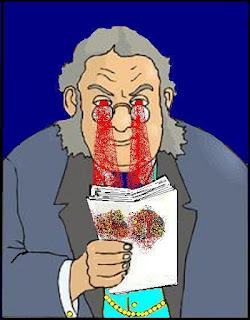 Guess the Plot
Guess the PlotDreams of Dark Sands
1. Dark Sands, a brooding high school student by day, apprentice to the Grim Reaper by night, dreams of a time when he can be released from the pact that ties him to his master and follow his true calling of interior design.
2. Betsy Nodd bought an unusual antique hourglass in Japan before heading home for the states. Now she must hunt dream-eating badgers through a land of nightmares before the sands run out. Every single %$#% night.
3. Dilah visits an oracle regarding a reoccurring dream of dark sand. This kicks off events involving volcanoes, princes, and a lot of sheep. Dilah just wants a good night sleep.
4. Unfortunately, Harlow has been cursed. Fortunately, there's a cure. Unfortunately, the person with the cure is an assassin. Fortunately, the assassin won't kill Harlow if she gets him an ancient relic, previously thought to have been lost in the sands of time. Unfortunately, there's no way she can get that relic. Fortunately, the assassin has fallen in love with her, so he probably won't kill her.
5. Carstairs has insomnia. He tried counting sheep, but there are only so many sheep in Hawaii, and he's always still awake when the last sheep jumps over the fence. But there one thing there's plenty of in Hawaii. Wet sand. If he counts grains of sand, he just might finally doze off.
6. To sleep, perchance to dream. So says Hamlet, but what he was hoping was to dream about Ophelia, preferably naked Ophelia. Instead he dreams about sand. Sand? WTF? Letdown.
Original Version
Dear agent,
Harlow is the last cursed human alive.
The Corruption, the black wall created during an ancient war, taints magic. [Not clear what that sentence has to do with the previous sentence or the following sentences. Or what it means.] Like a plague, Harlow was cursed simply because she was born. [I don't see how being cursed because you were born is like a plague.] Her older brother, Len, underestimates her ability to control the curse and she’s learned to be strong enough to contain it. But her strength is slipping.
When Len is accused of stealing and treason, Harlow is imprisoned. She doesn’t understand [know?] what he stole or why he’s thought to be serving the banished prince, but her secret is discovered. [What is her secret? That she's cursed?]
So far, this is all over the place. Here's a possible rewrite of what we have so far:
Harlow is the last cursed human alive. So far, she’s been strong enough to contain the curse, which. . . [does what? prevents her from . . . ? forces her to . . . ?] But her strength is slipping.
When her older brother, Len, is accused of theft and treason, Harlow is imprisoned.]
In her attempt to escape, an assassin saves her life. He’s willing to let her go, but for a price. If she retrieves the ancient relic Len stole, he’ll give her a cure. [For the curse? If there's only one human alive with the curse, why would this assassin be carrying around a cure for it? On the off chance he'll encounter this last human, and she'll have access to an ancient relic he wants? Why doesn't he try to get the relic from Len instead of Harlow?] [First, his half of the bargain was that he'd let her go, while her half of the bargain was getting him the relic. One sentence later, her half is still the relic, but his is removing her curse. Who's got the leverage here?]
Harlow must learn to harness her cursed power [What is this power? Has she ever tried to harness it before now? Is it better to harness the power of your curse, or to not be cursed?] to find Len and prove their innocence. [If Len has the relic, he's not exactly innocent. If he doesn't have it, maybe we should focus on the treason and forget the relic, at least in the query.] As she journeys, [Where is she journeying to? Is she looking for Len?] she learns the ancient war is still happening [Ah, so this is the Middle East.] [That explains the sand in the title.] and the banished prince is hunting her. [Why?] She has no choice but to work with her unlikely new ally. As their uneasy alliance forges an undeniable spark, she learns the assassin is actually a soldier named Velho, [She learns this how?] and is not what he seems. [If you mean he's a soldier and not the assassin he seemed to be, you just told us that.] There are also clear signs Len hasn’t been truthful about her curse. [What did Len say about her curse?]
Balancing on a knife's edge, Harlow will have to decide who’s lying, finding the relic, or risk a cure to rescue her brother. [Rescue him from what? Is he imprisoned?] [That sentence needs to be cleaned up so it makes sense.]
I’m writing to seek representation for my novel DREAMS OF DARK SANDS, a YA fantasy romance complete at 100,000 words. It starts with action (The Prison Healer by Lynette Noni) and then grows into a tangled web of delicious deceptions (A Curse So Dark and Lonely by Brigid Kemmerer). I graduated from BYUI in Professional Writing and have worked in content marketing for over 12 years. [I Googled "content marketing" and read the first three explanations of what it is, and I still have no idea what it is.] [That said, if you want to market the content of my blog without me having to do anything except cash the checks, call me.] I live in Utah and am an active member of the League of Utah Writers critique group.
Thank you for your time and consideration,
Notes
Start over. Organize the plot summary into three paragraphs.
P1: Who's the main character, what's her current situation, what's her ultimate goal?
P2: What's her plan to achieve her goal, what's her main obstacle?
P3: What crucial decision must she make, and what will happen if she fails/succeeds?
We need to know what the curse does, and if you're gonna bring up the banished prince, you might tell us what he wants from Harlow.
Len commits treason, so Harlow gets imprisoned. Velho wants the relic Len stole, so he goes to Harlow. Velho claims to be an assassin, and refuses to cure her unless she does what he wants. So of course she falls for him. I'm sure it's all reasonable in the book.
Presumably Velho was pretending not to be a soldier so he could trick Harlow into getting him the relic. Why he chose assassin as his disguise isn't clear. But it didn't keep her from falling in love with him, and him with her, so All's well . . . .
October 29, 2023
A new title in the query queue needs your amusing fake p...
October 24, 2023
Face-Lift 1438
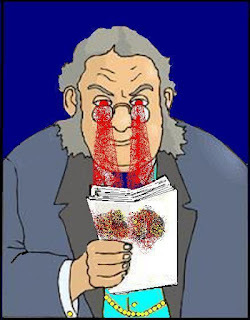 Guess the Plot
Guess the PlotThe Invader's Snare
1. A home invader kills a woman and hides the body in this intense and suspenseful story, told from the perspective of a spider.
2. Having conducted extensive research of Earth through its various transmissions, invaders inoculate themselves, disguise themselves, train themselves until they're indistinguishable from other oddballs in minimum wage jobs trolling the internet . . . Wait, what was it they were here to do again?
3. Jim Beurel wants to be a professional drummer so badly he's even willing to join The Invaders, despite the unexplained disappearances of their previous four drummers. His new bandmates turn out to be living-impaired, and on the witchy geek-a-tron, but hey, offering blood on the moon's cycles still beats living in mom's basement and serving fries at the diner.
4. Amalia has just concluded her med school studies, and is preparing to take a position as the king's royal healer, when her country is invaded and conquered by a brutal empire. Luckily (or not), the new emperor is also in the market for a good healer.
5. Diana is a bit naive, so her mom has drilled into her the mantra "It's a trap!", which she is to repeat aloud anytime anyone says anything to her. This leads to some comical situations, like when someone asks her if she wants paper or plastic bags. But it's also saved her life three times.
6. As a ruthless invading army builds a 40-foot-tall wall around their village, planning to starve them, the residents of Melford lose all hope . . . until one stalwart carpenter comes up with a plan . . . And sets to work building 45-foot-tall ladders.
7. The Marching Bandits have been very successful robbing banks, playing it cool with a steady beat on the way in and getting out before the rising tempo signals the arrival of police. But when their M.O. suddenly changes to home invasion and murder, homicide detective Zach Martinez knows two things: going undercover may be his only chance to change the music, and three humiliating years as a high school band geek are about to pay off.
Original Version
Dear Mr. Evil Editor,
Set in a world inspired by the Age of Enlightenment, THE INVADER’S SNARE (107,000 words) is an adult fantasy novel written in the style of a wartime memoir. It will resonate with readers who crave slow burn romantic subplots like Samantha Shannon’s The Priory of the Orange Tree and the gritty Machiavellian overtones found in Seth Dickinson’s The Traitor Baru Cormorant. [Technically, you're calling The Priory of the Orange Tree a romantic subplot. You could add "those found in" after "subplots like". If you don't like using "found in" twice in the same sentence, one of them could be "featured in" or "present in." Or just "of" would work with the overtones .] Given your interest in strong female voices and unique settings, I believe this story will [might] be a good fit for your list. [I think this paragraph would work better after the plot summary.]
Amalia makes no apologies for preferring the company of books over people. [I'm the same way. I also prefer dogs and Cherry Garcia over people.] Her self-study alone earns her a spot at the Academy of Healing. [where,] At twenty-seven, she masters a technique that plucks the mortally wounded from the clutches of death. [But] Before she can assume her position as Calderon’s royal healer, the notoriously brutal Malant Empire conquers her country. [It feels like this conquering happened awfully fast. One minute you're walking across the stage to get your diploma, and when you reach the other side of the stage your new evil overlord is waiting for you with shackles. How long have these countries been at war?] [Presumably, every time a brutal empire conquers a country, there are a lot of people in that country who recently submitted job applications or sent manuscripts to a literary agent. How do you know whether it's too soon to nudge a prospective employer or agent for a response when, for all you know, they've been enslaved by the Malants?] [Although, it's hard to imagine the Malants enslaving literary agents, who have no skills that would be useful to the Malants. Or to anyone else, for that matter.] [But enough about all the agents who don't want to read my novel.]
Now a prisoner inside the Academy, Amalia must conceal her coveted ability or risk being shipped off to serve the tyrannical emperor. A guardian arrives in the form of an enigmatic Malant warden, Captain Valens. [Once you've declared this a fantasy novel, that sentence is likely to convince some readers that the guardian is a shapeshifter. Maybe: An enigmatic warden, Captain Valens, arrives, ostensibly to . . . guard the Academy? Guard Amalia? What does he claim he's here for?] Valens renounces torture, quotes poetry, and shares a love of philosophy. The pair forms [form] an unlikely bond as Valens challenges Amalia’s cynical nature while edging closer to discovering her secret.
[Amalia: Your evil empire is going to enslave us all. Just a matter of time.
Valens: Don't be so cynical. Let's continue our discussion of Kierkegaard and his view that keeping secrets is sinister, if not evil.]
A Malant viceroy shatters the momentary peace and challenges Valens’[s] unconventional methods. [His methods of uncovering her secret? I still don't know if that's his mission.] Amalia knows better than to cross the ruthless viceroy, who offers her a choice: betray her budding feelings and kill the warden or languish in eternal captivity. [Hmm. Kill one officer of the brutal empire that just conquered my country, denying me the future I worked so hard for, or spend eternity in captivity. I'll need time to a decision. Okay, got it.] As Amalia grapples with her principles as a healer, she unearths a dark past that plunges her into uncertainty over who she can consider ally or foe.
Thanks for your consideration. May I share my full manuscript with you?
Notes
Despite all the blue words, this was a decent query. It might be worth answering any serious questions I had, or getting rid of whatever inspired me to ask them.
No way could this Valens guy rise to the rank of warden in the notoriously brutal Malant empire I assume he's putting on an act in order to discover Amalia's secret. How does he know she has a secret? Does he suspect she's a healer? Didn't the Academy of Healing keep records of which students mastered the art of plucking the mortally wounded from the clutches of death?
Speaking of which, some editors might read "a technique that plucks the mortally wounded from the clutches of death," and think, Nice word choice, colorful, and other agents might think, No wonder the novel is 107,000 words, why not just say a technique for healing the mortally wounded? It's your agent's job to know which editors are which.
It sounds like Valens is the invader in the title. And the snare is the trickery being used to get Amalia to reveal her secret? And the viceroy is in on it? (Surely if the ruthless viceroy wanted Valens dead, he'd just kill him.) Whether or not any of that is true, it's hard to believe that soon after conquering a country, an evil empire would devote time and personnel to trying to learn a nebulous secret they think a 27-year-old recent graduate might be keeping. Are they trying to find out what secrets other people have? Don't they have better things to do, like dealing with the inevitable Rebel Underground?
October 19, 2023
A new title in the query queue needs your amusing fake ...
August 30, 2023
Face-Lift 1437
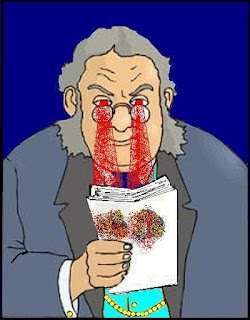 Guess the Plot
Guess the PlotJacob's Monster
1. His friends all have puppies and kittens, but Jacob has . . . well, he doesn't know what it is. What he does know is that at the rate it's growing, they're gonna need a much bigger house.
2. When a massive iron door appears in his house, 13-year-old Jacob is tempted to open it, releasing the monster imprisoned behind it. Sure, it could turn out bad, but let's face it: that monster can't be any worse than Jacob's father.
3. Jacob found a monster under his bed. He fed it dust bunnies, liver, spinach, and his homework. He convinced it to do his chores and go to school in his place while he hid in his closet and played video games. That was three years ago, and Jacob just beat level 86452.
4. Jacob never tidied under the bed or in the closet; Why should he? No one ever went there anyway. But when a game of hide and seek ends up with two of his friends missing for good, can he come up with an explanation that their parents will buy?
5. It starts with a graveyard, but involves more earthly clay than mortal. And lightning is dangerous, so Jacob makes do with the house current and a few dozen stripped wires. Does he get life? This isn't a philosophy text. He does get lots of death though. Lots and lots.
6. All hell breaks loose--literally--on Bring Your Pet to School Day, when 7-year-old Jacob brings in his monster: an actual demon from the bowels of hell.
Original Version
Dear [Agent],
I hope you’re doing well. [Who are you writing to, your aunt? The agent is doing well enough that she's decided to slog into her pile of query letters for the first time in months, a rare window of opportunity for you. Get going.]
Like most children of addicts, 13-year-old Jacob learned early on how to monitor his alcoholic father’s moods and shape his life around them. Jacob's father was an everyday monster wearing a beloved face.
Jacob’s life changed in the summer of ‘74 when his grandfather died and the house violently shook, revealing a massive iron door covered in strange symbols and an unfamiliar language. [It didn't take long for the genre to go from litfic to Lara Croft: Tomb Raider sequel.] Something sinister lay behind the door, a hateful thing that saw into Jacob’s heart and offered him what he truly desired, a way to have power over his life in exchange for its freedom.
Driven by anger fueled by feeling powerless in his life, Jacob was a ripe target. And [But] while tempted to drink of forbidden things, [What things are forbidden?] he had an unsettling feeling that to give entry would be to give up everything he was. [On the other hand, he would have what he truly desired, and what he was was a powerless kid with a drunk for a father, so he said, "Screw it," and opened the door.] [Right?] [The last three sentences have included "Something sinister," "hateful thing," "forbidden things," and "everything he was." The word "thing" is vague, and adding a descriptor to it doesn't make it much more specific. Also, two consecutive sentences have the words "power over his life" and "powerless in his life." Either is sufficient to convey the idea.]
Quickly the stakes rose when he heard the monster make the same offer to his father and Jacob knew it would be just a matter of time before his father, in the bottom of a can [bottle?] and soaked with rage about the unfairness of life, would accept. [A matter of time? It wouldn't take any time.
Jacob's Monster: Open the iron door, and I'll give you a pint of tequila.
Jacob's father: Deal.]
Armed with vague clues in a box of artifacts left to him by his grandfather, he sets out to find a way to stop the monster and save his family. [At last we've switched to the present tense, the default for query letter plot summaries. I can see the paragraph that starts "Like most children of addicts" in past tense, but I'd change the rest to present.] [Also, is the monster just a threat to Jacob's family? To the town? To the whole world?] [Does Jacob's family consist of more than him and his father?] Jacob finds unlikely allies in a bully, the unusual new kid at school, a librarian, and a rabbi. [These are not the people you recruit to take on a monster. You need a wizard, a computer expert (preferably in a wheelchair), a giant, and . . . ok, the unusual new kid at school.]
The story culminates with a desperate journey into a world inspired by Dante’s Inferno [or at least what I know about Dante's Inferno from watching Supernatural.] and an epic confrontation with the monster to save the soul of his father. [His father, the everyday monster soaked with rage who made Jacob's life miserable is now a sympathetic character?]
I’m currently seeking representation for my debut Adult Horror novel, [Wait, this is for adults? Your main character is 13. While plenty of adults have read and enjoyed the Harry Potter books, I'm pretty sure they were marketed to agents and editors as kids' books.] Jacob’s Monster, a novel of a little over (86,500 words), the first in a planned series following the protagonist over his life. [Book 2 will feature Jacob at the age of 14, going on 15.] Inspired by a lifetime of experience with my alcoholic father, it combines the emotional grit of the film STAND BY ME, a STRANGER THINGS vibe, and a dose of the supernatural.
I live and write in Phoenix, Arizona where I live with my wife, son, and daughter. I’ve been working on my writing for the last 33 years, sidetracked by many things but always hearing the voices of my characters, begging for their stories to be told.
Thank you for your consideration,
Notes
I'm imagining myself at the age of 13 battling Godzilla. It doesn't go well for me.Then I add a librarian and a rabbi. Same result. Maybe we need more information about what those artifacts do.
Are you sure you don't have two books here, a memoir and a middle grade horror/adventure? Neither of which is quite long enough to interest an agent, but when combined, just might?
Evil Editor's Blog
- Evil Editor's profile
- 6 followers






